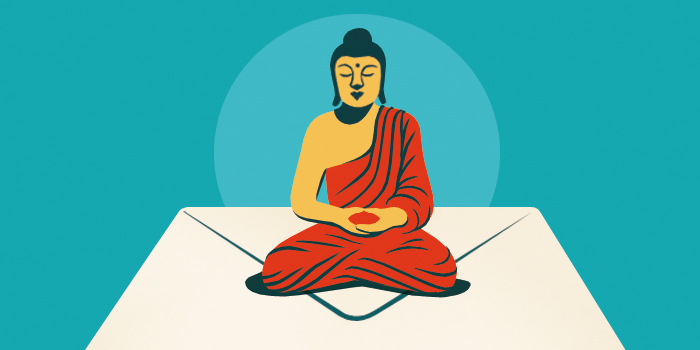Common Misconceptions about Buddhism

NCB / Alamy Stock Photo
From meditation apps to Buddha statues in yoga studios to the use of “Zen” as an adjective, elements of Buddhist philosophy and practice permeate popular culture in the West.
As Buddhism and mindfulness have become more popular in mainstream Western culture, many people are more familiar with Buddhism than ever before. At the same time, many myths and misconceptions have proliferated along with rising interest in the Buddhist teachings.
What did the Buddha really teach? Do you have to meditate to be a Buddhist? Is the Dalai Lama the leader of Buddhism? These questions point toward just a few common sources of confusion that people have when they first come to the Buddhist path.
Buddhist wisdom is nuanced and complex, and it doesn’t always fit neatly into simple one-line explanations. You may also encounter different information from different sources. Conflicting information about Buddhism is common. Read on to learn more about the most popular misconceptions.
Discover Deck 5:
Do all Buddhists meditate? Meditation is an important component of the Buddha’s teachings on how to achieve awakening, but it’s not a necessity.
Is it true that Buddhists believe there’s no such thing as “self”? The doctrine of not-self doesn’t mean that there is no self, period—it points to the absence of a fixed, separate self.
Is the Dalai Lama the leader of Buddhism? The Dalai Lama is the world’s most famous Buddhist, but he’s not the leader of Buddhism.
Do I have to be religious to be a Buddhist? The short answer is no, but it depends on what “being religious” means to you.
Is the purpose of meditation to stop thinking? Many people start meditating with the belief that they need to silence their minds—but that’s not how the Buddha described the goal of the practice.
Are all Buddhists vegetarians? While the first precept says to refrain from taking life, it doesn’t mean that you have to be a vegetarian to be Buddhist.
Do Buddhists believe we are all one? Some of the confusion around this question is a misunderstanding of the key teaching of dependent arising.
Is relaxation the purpose of Buddhist practice? Meditation is a great way to relax, but there’s a greater purpose to our practice.
Recommended Reading:
- Why Meditate? – Interview with Matthieu Ricard
- How to Understand Selflessness—and Why It’s So Important, by Joseph Goldstein
- The Myth of Separation – Interview with Tara Brach and Konda Mason
- Meditation Alone Is Not Enough, by Judy Leif
- We Are Not One, by Thannissaro Bikkhu

Tricycle is more than a magazine
Gain access to the best in sprititual film, our growing collection of e-books, and monthly talks, plus our 25-year archive
Subscribe now